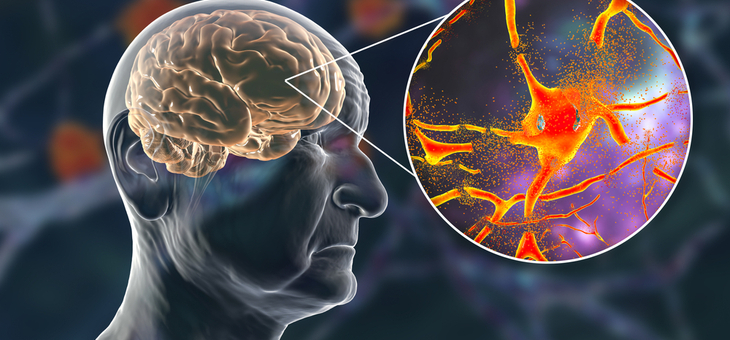COVID could increase the risk of developing Alzheimer’s disease and adversely affecting cognitive functions, especially among older people.
Studies have shown that COVID can cause health problems long after the initial infection has subsided. Breathing difficulties, extreme fatigue, increased risk of blood clots, stroke, diabetes and even death have all been reported months after recovery in what has come to be known as ‘long COVID’.
But preliminary research presented at the Alzheimer’s International Conference 2021 suggests that the virus may also have a lasting effect on cognitive ability and, in particular, may lead to an increased risk of Alzheimer’s disease.
“This pandemic gave us a really unwelcome opportunity to study the impact of viral infection – but specifically this virus – on the brain,” said Professor Heather Snyder, Alzheimer’s Association vice-president of medical and scientific relations.
“These new data point to disturbing trends showing COVID-19 infections leading to lasting cognitive impairment and even Alzheimer’s symptoms.”
Read: Study shows more symptoms long after COVID-19 patients ‘recover’
Prof. Snyder cautioned that while the results are concerning, a great deal more research is needed into the long-term effects of COVID on the brain.
If you have COVID, we’re still trying to understand the full impact on brain health, she said.
The post-COVID cognitive symptoms were found to be more common in older people, and the severity of the COVID infection did not play a role in determining whether or not cognitive issues would develop.
These results were consistent with previous findings from a study of the cognitive abilities of 400 older adults in Argentina. This study showed that more than 60 per cent of participants had decreased cognitive ability and increased Alzheimer’s-related biomarkers months after recovering from the virus.
Read: Fears over long-term effects of COVID
“We’re starting to see clear connections between COVID-19 and problems with cognition months after infection,” said Professor Gabriel de Erausquin, one of the study’s authors.
“What puts you at risk of having the cognitive problems is just having been infected, regardless of how badly ill you were.
“You may have had very mild COVID, but if you were infected and you are older, you are at risk of having these issues.”
Prof. de Erausquin said there was a strong correlation between COVID-related cognitive impairment and developing a lack of smell.
“They track together quite well.
“The more severe your lack of smell, the more severe your cognitive impairment.
“We don’t know if this is going to continue to get worse over time or if it might improve or if it will stay the same.”
Read: Study shows COVID is linked to Alzheimer’s-like brain changes
The long-term effects of the coronavirus are only beginning to be fully understood in Australia. A study of nearly 3000 Australians diagnosed with COVID conducted by the University of New South Wales (UNSW) and NSW Health found around 5 per cent of people were still experiencing negative symptoms three months after recovery. The most commonly reported symptoms were cough and fatigue.
Lead study author Professor Bette Liu said: “Our data demonstrates the substantial direct impact of COVID-19 on population health – and the need to consider not only hospitalisations and deaths, but also the longer-term health of those with less severe forms of the disease.
“It is well known that COVID-19 severity increases with age and with the prevalence of other illnesses or underlying health conditions, so it’s unsurprising that we found recovery was slower and less likely in these groups.”
Do you know anyone who had has COVID? Are they still suffering months after ‘recovering’? Let us know in the comments section below.
If you enjoy our content, don’t keep it to yourself. Share our free eNews with your friends and encourage them to sign up.

